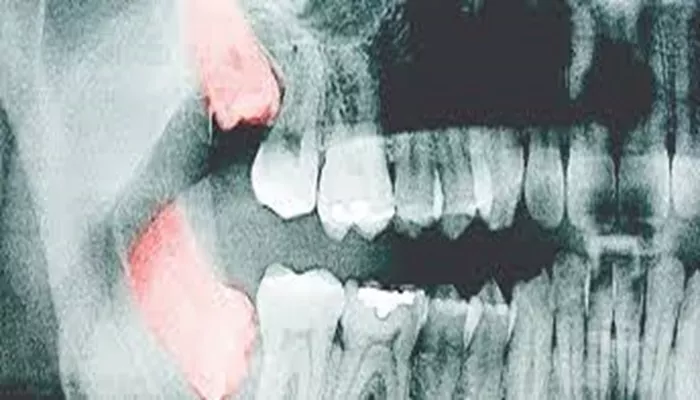Wisdom teeth, also known as third molars, are the last set of molars located at the back of the mouth. These teeth typically emerge in late adolescence or early adulthood, around the ages of 17 to 25. For many individuals, wisdom teeth can pose significant dental challenges, leading to their removal. If you’re considering or have been advised to have your wisdom teeth extracted, understanding what to expect during and after the procedure can help alleviate concerns and prepare you for a smoother recovery. This article will provide a comprehensive overview of what happens when wisdom teeth are removed, including the reasons for extraction, the procedure itself, and post-operative care.
Why Wisdom Teeth Are Removed
Wisdom teeth are often removed due to a range of issues that can arise as they develop. Here are some common reasons for extraction:
Impaction: Wisdom teeth may become impacted, meaning they do not fully emerge from the gums or come in at an angle.
This can lead to pain, infection, and damage to adjacent teeth.
Crowding: In some cases, there is not enough space in the jaw for the wisdom teeth to emerge properly. This can cause crowding of other teeth, potentially leading to misalignment.
Decay and Gum Disease: Wisdom teeth are located at the back of the mouth, making them difficult to clean thoroughly.
This can lead to decay or gum disease, which may require removal to prevent further oral health issues.
Cysts and Tumors: Occasionally, cysts or tumors may form around impacted wisdom teeth, necessitating their removal to prevent damage to the jawbone and surrounding structures.
SEE ALSO: Which Wisdom Teeth Hurt The Most to Remove?
What to Expect When Getting Your Wisdom Teeth Removed
Understanding the procedure for wisdom tooth extraction can help you feel more at ease. Here’s a step-by-step guide to what happens during the extraction process:
Pre-Operative Consultation: Before the extraction, you will have a consultation with your dentist or oral surgeon. They will assess your dental and medical history, take X-rays, and discuss the procedure with you. This is also a good time to ask any questions you may have.
Anesthesia Options: Wisdom tooth removal can be performed under local anesthesia, sedation, or general anesthesia.
Local anesthesia numbs the area around the tooth, while sedation or general anesthesia puts you into a state of relaxation or sleep. Your dentist will recommend the best option based on your comfort level and the complexity of the extraction.
Extraction Procedure: During the procedure, the dentist or oral surgeon will make an incision in the gum tissue to access the wisdom tooth. If the tooth is impacted or requires removal in pieces, the surgeon may need to section it into smaller parts. Once the tooth is removed, the area will be cleaned, and stitches may be placed if necessary.
Recovery and Post-Operative Care: After the extraction, you will be given instructions on how to care for the extraction site. This typically includes guidelines on managing pain, reducing swelling, and maintaining oral hygiene. Your dentist will also provide you with a follow-up appointment to monitor your healing progress.
Post-Operative Care: Healing and Recovery
The recovery process after wisdom tooth removal is crucial for ensuring proper healing and minimizing complications. Here are some key aspects of post-operative care:
Managing Pain and Discomfort: It is normal to experience some pain and discomfort after the procedure. Your dentist will prescribe pain medication or recommend over-the-counter options. Applying ice packs to the outside of your face can also help reduce swelling.
Following a Soft Diet: For the first few days after surgery, stick to a soft diet to avoid irritating the extraction site. Foods such as yogurt, applesauce, and mashed potatoes are good choices. Avoid hard, crunchy, or sticky foods that could disrupt the healing process.
Oral Hygiene: Keeping your mouth clean is essential to prevent infection. Your dentist will provide specific instructions on how to brush your teeth and rinse your mouth. Avoid brushing directly on the extraction site for the first few days to prevent dislodging the blood clot that forms in the socket.
Avoiding Certain Activities: Refrain from smoking, using straws, or engaging in strenuous physical activities for the first few days after surgery. These actions can increase the risk of complications such as dry socket, where the blood clot becomes dislodged from the extraction site.
Watching for Complications: While complications are rare, it’s important to be aware of potential issues such as prolonged bleeding, severe pain, or signs of infection (e.g., fever, pus). Contact your dentist if you experience any unusual symptoms.
Common Questions And Concerns
Here are answers to some common questions and concerns about wisdom tooth extraction:
How Long Does the Procedure Take?: The extraction procedure itself usually takes between 30 minutes to an hour, depending on the complexity of the case.
Will I Need Stitches?: Stitches are often used to close the gum tissue after the extraction. These stitches are typically dissolvable and do not need to be removed.
How Long is the Recovery Period?: Most people experience a recovery period of about one to two weeks. However, the healing time can vary depending on factors such as the complexity of the extraction and individual healing rates.
Can I Drive Myself Home After the Procedure?: If you receive sedation or general anesthesia, you should arrange for someone to drive you home. Local anesthesia alone usually allows you to drive, but it’s best to check with your dentist beforehand.
Conclusion
Wisdom tooth removal is a common dental procedure that can alleviate pain and prevent future oral health issues. By understanding what to expect before, during, and after the procedure, you can better prepare yourself for a smooth and successful recovery. If you have any questions or concerns about wisdom tooth extraction, don’t hesitate to discuss them with your dentist or oral surgeon. Proper care and attention to post-operative instructions will help ensure that your recovery is as comfortable and complication-free as possible.

